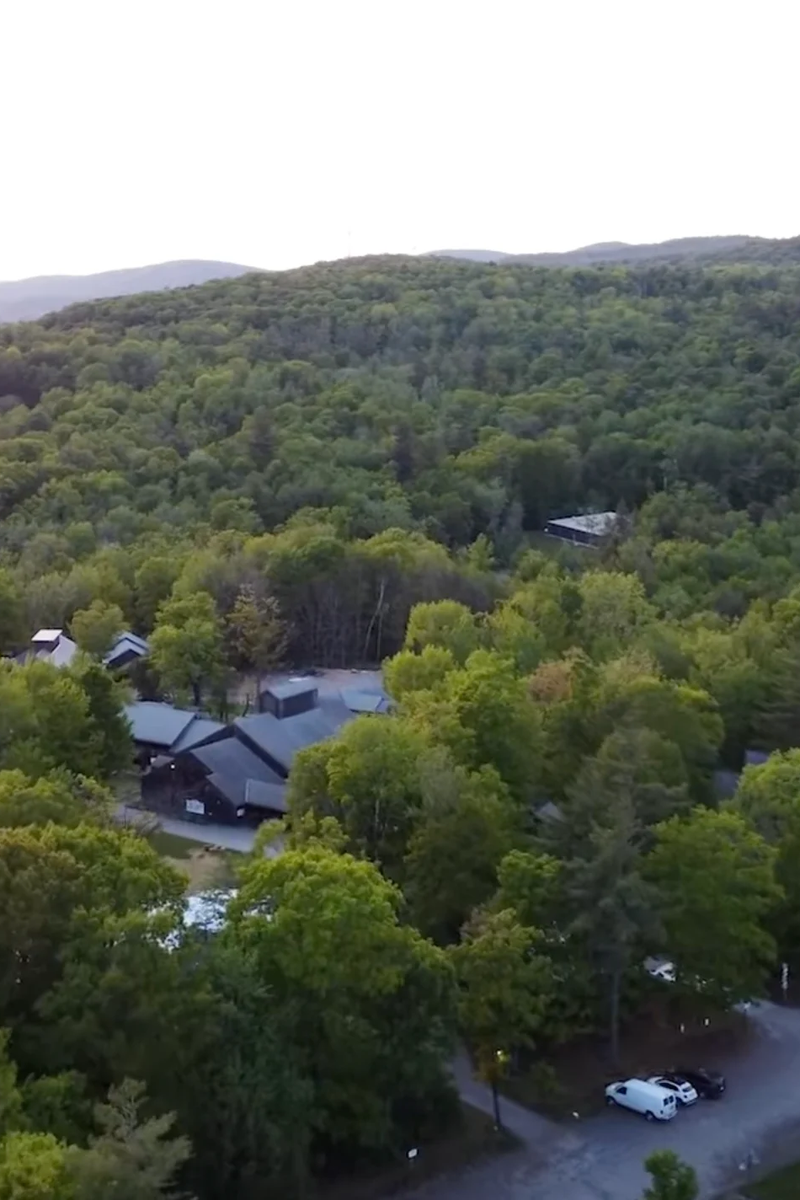Land Acknowledgement

It is with gratitude and humility that Jacob’s Pillow acknowledges that we are learning, speaking, and gathering on the ancestral homelands of the Muh-he-con-ne-ok or Mohican people, who are the Indigenous peoples of this land. Despite tremendous hardship in being forced from here, today they reside in Wisconsin and are known as the Stockbridge-Munsee Community. We pay honor and respect to their ancestors and elders past and present as we commit to building a more inclusive and equitable space for all.
As a cultural home serving the area now known as the Berkshires, we also pay our respects to the Indigenous people who continue to live in this region and exercise sovereignty: the Nipmuc to the East; the Wampanoag and Narragansett to the Southeast; the Agawam, Mohegan, Pequot, and Schaghticoke to the South; and the Abenaki to the North.
We believe it is the role of the arts to make the invisible visible. After centuries of erasure, we the stewards of Jacob’s Pillow hold the responsibility to recognize the Indigenous peoples and the land that gives Jacob’s Pillow its quintessential identity. As allies, this acknowledgement is only part of our commitment to building relationships with Indigenous artists from around the country and the world and communities who still reside in our region.
Learn about the Stockbridge-Munsee Community
To learn more about the Stockbridge-Munsee Band of Mohican Indians—People of the Waters That Are Never Still—and their rich and enduring history, preserved through oral tradition and the written word, visit their official website: mohican.com/brief-history
The Arvid E. Miller Memorial Library and Museum, located in Bowler, WI, serves as the official repository of Stockbridge-Munsee archives and is a vital resource for preserving community history and culture.
Take a self-guided walking tour of Main Street in Stockbridge, MA, exploring eleven culturally significant Mohican sites. A virtual and interactive version is available online, narrated by members of the Stockbridge-Munsee Community.
Visit the Native-Land.ca app to find out about the Indigenous history of where you live.
Permanent Installation: Homesite by Andre Strongbearheart Gaines, Jr. at Jacob’s Garden
In 2022, the Pillow commissioned Andre Strongbearheart Gaines, Jr. to create a traditional Nipmuc homesite, including a mishoon-burning installation at our main entrance that was activated at multiple events during the 90th Anniversary Festival. The homesite has now been permanently relocated to Jacob’s Garden where it continues to be accessible to the public. On August 2, join Andre Strongbearheart Gaines, Jr., with Tracy Ramos, William SmallEarCoyote Connors, Miguel WanderingTurtle Garate, and Nazario TallHairRedDeer Garate to learn about Eastern Woodlands culture at the homesite.
Indigenous Enterprise
This electrifying Phoenix-based dance company brings their signature blend of traditional powwow dances and contemporary flair to the outdoor stage, sharing Native culture through movement, fashion, and joy.
Calpulli Mexican Dance Company
Through vibrant choreography and live music, Calpulli Mexican Dance Company honors the rich Indigenous heritage of Mexico. Their program highlights cultural traditions such as the Purépecha community’s belief that mariposas monarcas (monarch butterflies) carry the spirits of ancestors—a symbol that also holds deep meaning for the Mazahua, Otomi, and Aztec peoples. One of the central characters in the piece is the Matriarca, a figure of deep respect in the community. She holds the wisdom to see and connect with the ancestors, serving as a spiritual bridge between past and present. The performance also features El Jarabe Mixteco, rooted in the Mixtec community of Oaxaca, and the ceremonial use of the quiquiztli (conch shell), found across Mesoamerican cultures including the Aztec and Maya. Dances from the Huasteca region reflect a mestizo cultural identity rooted in native traditions.
Brenda Mallory
Brenda Mallory (Cherokee Nation) presents new visual work in the Jameson Lobby of the Doris Duke Theatre. Her sculptural installations repurpose salvaged materials to explore themes of disruption, repair, and cultural memory.
Misty Cook & Kathi Arnold
In the Duke Garden, Indigenous herbalists Misty Cook (Stockbridge-Munsee) and Kathi Arnold (Nipmuc) create a space to connect with plant-based healing practices and traditional medicine. On July 8, join Misty Cook and Kathi Arnold on a nature walk of the Pillow’s campus.
Shawn L. Stevens and Friends
An enrolled member of the Stockbridge-Munsee Band of Mohicans, Shawn L. Stevens and Friends from Bowler, WI open the new theater during Festival 2025 with an honor song. Through traditional drumming and singing, they offer a powerful moment of reflection and recognition, and grounding.
Elle Sofe Company
From Sámi lands in northern Norway, Elle Sofe Sara’s company brings Vástádus eana – The answer is land to the Doris Duke Theatre. Rooted in joik, a traditional Sámi vocal practice, this meditative work is a call to action and a tribute to Sámi women.
Bulareyaung Dance Company
Taiwan-based Bulareyaung Dance Company shares the spirit and stories of the island’s Indigenous peoples through striking choreography grounded in ritual, rhythm, and landscape.
Pua Ali‘i ‘Ilima
Founded by hula master Vicky Holt Takamine, this esteemed Hawaiian dance company takes to the outdoor stage, honoring Native Hawaiian traditions through oli (chant), hula, and storytelling.
Kumu Hula Vicky Holt Takamine
A respected kumu hula and cultural advocate, Takamine joins us for a PillowTalk to discuss her work, legacy, and the role of hula in preserving Indigenous knowledge.
Michela Marino Lerman
Tap artist Michela Marino Lerman draws from a rich and diverse ancestry—including Amazigh (Indigenous North African), Egyptian, Ukrainian, and Turkish roots—to create spiritual, communal performance experiences grounded in rhythm and ritual.